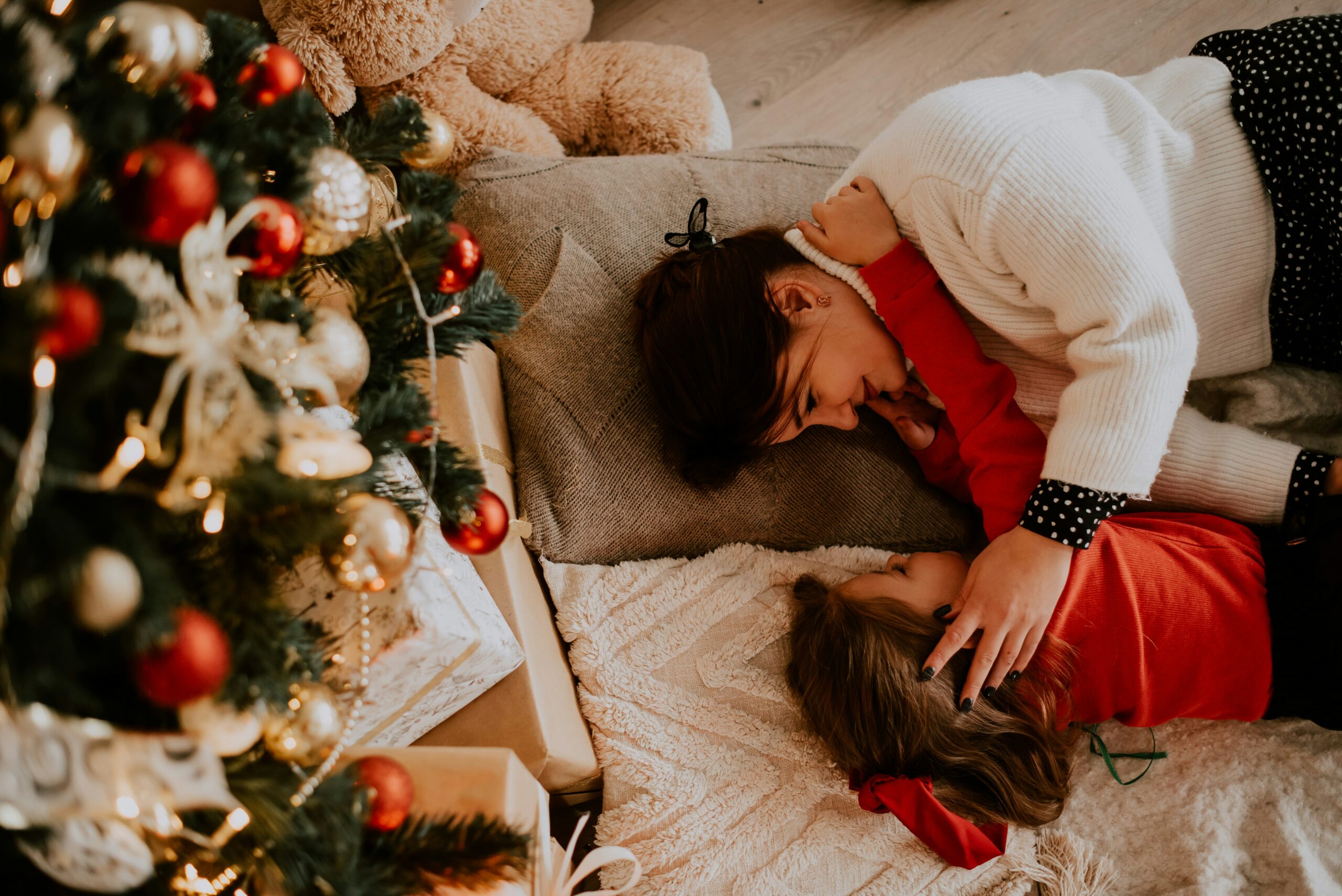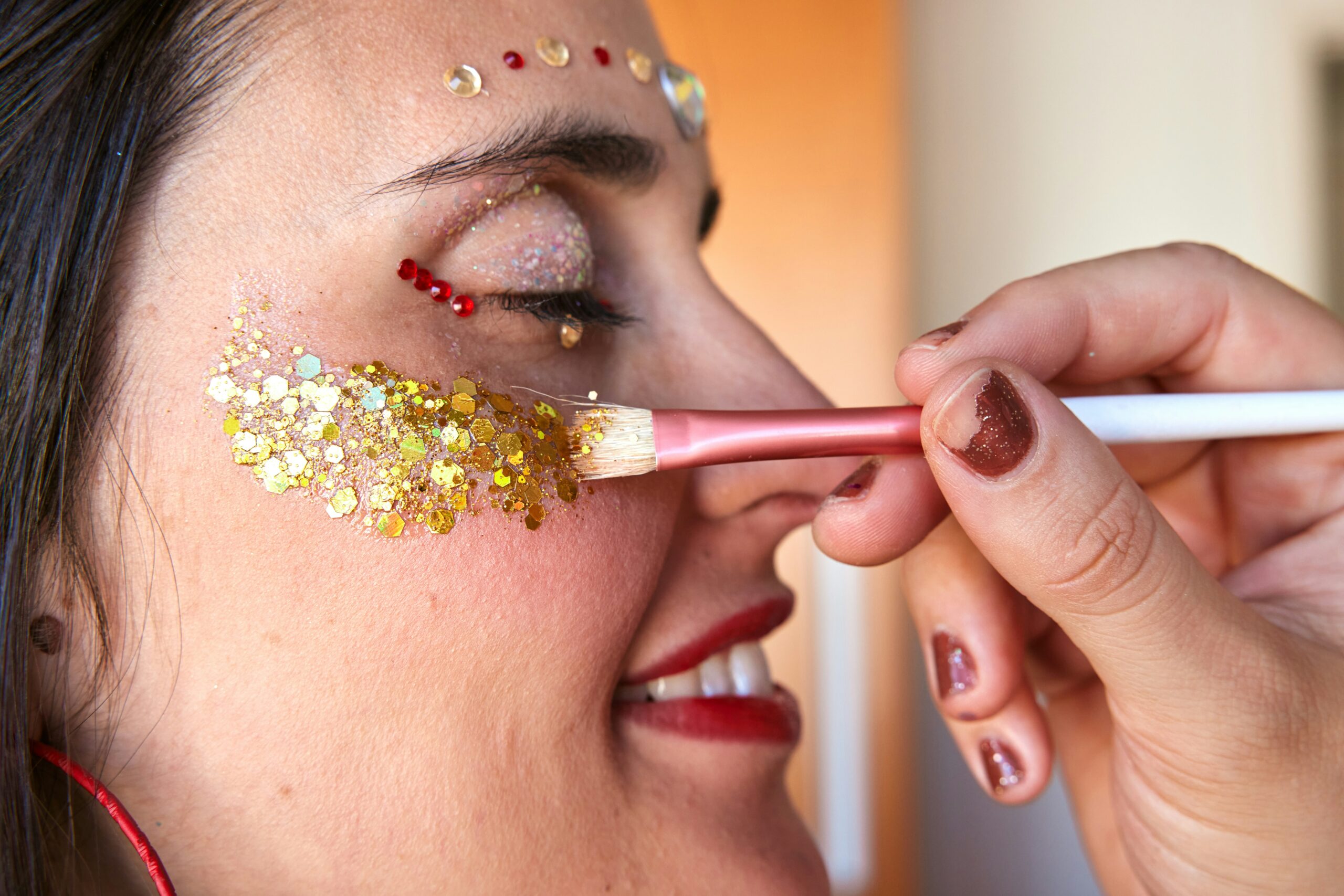It was the first Thanksgiving after our divorce, which had only been finalized a few months earlier. My ex and I—and in recent years, our young daughter—had always gone to New York to visit my in-laws.
This was the first year I’d be on my own.
I spent the week before the holiday gathering all the winter clothes my daughter would need and packing her bag. Even though we had been living in two homes for ten months, I was still the one who made sure her bag was ready, ensuring she would have all of her necessary items. Her dad and I had had distinct roles in our family—and we maintained many of them after our separation, which was both frustrating and also provided a certain comforting familiarity.
In recent months, I had become used to kissing and waving good-bye to my daughter, but I always knew I would see her again in two days. Now it would be a full nine days. I could feel—though not yet quite consciously—sadness at the prospect of not seeing her for so long silently slip into my body.
I wasn’t prepared for a whole new set of feelings to arise about the holidays, even though I had never been a big holiday person. What had been important was the family time we shared around the holidays. My ex-husband and I were together for 14 years: long enough to establish traditions and memories.
After I said good-bye to my daughter, I sat on my living room couch, staring out into the silent room—and the loneliness hit me. No sound of my daughter playing. No plans to cook a meal. It was as if I were suddenly flipping through an old album filled with torn-up memories from my marriage. I thought I had already started to move on, so why was I feeling so much loss and emptiness? This was supposed to be getting easier.
I scrolled frantically through my contacts, looking for someone I could call or hang out with. But it was Thanksgiving, and all my close friends were with their families.
I spent the rest of the day wandering around my apartment in my PJs, wasting hours in a daze: either staring vacantly into the fridge or scrolling through inspirational Instagram posts that told me to be my best self, do self-care, and take care of my own needs. Those words felt like silky sheets, but they only ended up crumpled on the floor of my consciousness.
Before I was married, I looked forward to quiet retreats whenever my roommate was gone and my social and work obligations were on hold. Because my parents live in France, visiting them for one week was not an option. I spent many of those quiet holidays focused on writing songs, diving into a new book or getting ahead on a work project—all of which felt refreshing.
But my first Thanksgiving alone felt neither refreshing nor retreatish.
The last thing I wanted was to focus on a work project or play music. Even the idea of it made me feel even lonelier. I missed my daughter. I missed being at my in-laws having Thanksgiving dinner. I even missed dealing with the sometimes difficult family dynamics. I felt left out and sad.
On one hand, I was relieved to no longer be in a relationship that felt unsafe.. but on the other hand, I was feeling a new wave of grief that came from the loss of family routines and traditions. How could it feel so right and so wrong at the same time?
That was when I realized I couldn’t continue like this.
Even though it hurt to think about the moments I’d be missing with my daughter and my in-laws, I needed to create new traditions for myself. I needed to recommit to a new relationship with myself and to reconnect with my interests and with what brought me meaning and joy. I needed to take care of myself—not as a reaction to what I was no longer part of, but as an expression of who I wanted to be.
Self-care wasn’t just about spa time and yoga—it was about showing up for myself in the way I yearned for someone else to see me. I needed to refocus on projects I wanted to launch now that I had more time, and on creating new memories for my present and future self. In short, I needed to create newness and reclaim my life.
That first Thanksgiving marked a turning point. I decided to plan ahead for the holidays I’d be on my own.

My co-parent and I had already agreed he would have our daughter on Thanksgiving and I would have her for the winter holidays. Thus, I knew what to expect for the upcoming year. I decided Thanksgiving would be my time to travel with girlfriends or spend on my own or with the boyfriend I imagined having one day. I wrote down all the cities I wanted to visit, and I started to feel excited. Community has always been fundamental to me, so I decided that, on the years I didn’t want to travel, I would host a potluck dinner for folks who also weren’t with their families.
This intentional planning eventually led me to write a book, to meet my new wonderful partner, to explore new cities and create new experiences and adventures for myself.

In this way, my own Thanksgiving traditions took form. Instead of feeling like a failure and being afraid of being alone, I leaned into change and into becoming comfortable on my own and spending time with my own creativity.
I brought back to life those parts of myself I had lost within my marriage.

Regardless if this year is your first holiday season on your own or your third, it can be an opportunity for you to intentionally make time for yourself and what you want your Thanksgiving holiday to be. This time often brings up complicated feelings like grief or resentment, but it can be so empowering to reclaim the holiday by creating experience that are about you and the traditions you want to create. Your Thanksgiving can bring new joy and meaning if you make it so.
Start by asking yourself: How do you want to feel when you look back on this holiday experience?
Author
-

Aurisha Smolarski, LMFT, is an award-winning author, licensed marriage and family therapist, and co-parenting coach based in Los Angeles. With over 15 years of experience, she specializes in helping families create supportive co-parenting structures for children’s well-being. Aurisha is the author of Cooperative Co-Parenting for Secure Kids and has been featured in Vogue, Psychology Today, The Huffington Post, Parents, and more. A passionate violinist and traveler, she enjoys hiking, discovering with new recipes, and spending time with her partner, daughter, and cat.
View all posts




